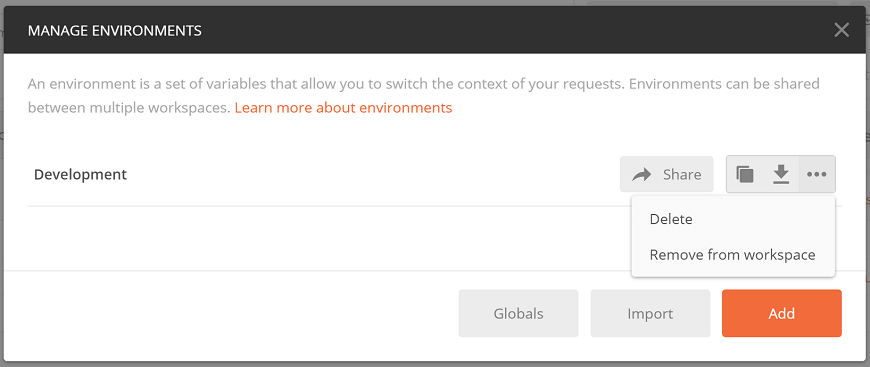
Variables are often used to store sensitive information such as API credentials that are needed in the authentication and. In Postman, variables enable you with data reusability and also foster collaboration when developing and testing API requests. Postman does not distribute actual customer data for internal testing or validation purposes. Introducing the Secret Variable Type in Postman. We maintain all internal testing and validation data in a production-stack equivalent internal stack populated with fictitious data.


This will help you avoid mistakenly sharing your tokens and secrets to an unintended audience while screen sharing or livestreaming. You can also choose a "secret" data type for the environment variables to mask the initial and current values. We recommend using session variables for any data that you do not want to be synced to Postman's servers. For example, when using one of the Vonage APIs that. We have also added sessions in the 6.2 release onwards of Postman. Variables in Postman are great, but they arent a universal tool for fixing every cumbersome thing. Not only it allows you to save and manage some repeating information (like URLs, authentication tokens or. Postman environment variables are covered in this classification and we strongly encourage you to use them to store your authentication keys and passwords. Variables are a very powerful feature of Postman. We have also instituted per-service access protection and isolation of data.ĭepending upon its sensitivity classification, customer data is AES-256-GCM encrypted at the server-side before storage. The type of variables in Postman might be confusing as there are quite a few of them, such as. Variables allow you to store and reuse values in your requests and scripts.

The variable’s name represents what information the variable contains. Data is stored with at least dual redundancy, with 15-day backups, and is accessible only within the private cloud. A variable is a symbolic name for - or a reference to - information. Their values are generated at the time of. You can use these variables like any other variable in Postman. You can use these pre-defined variables multiple times to return different values per request. All customer data is stored in databases on Amazon RDS, which are configured securely. Postman uses the faker library to generate sample data, including random names, addresses, email addresses, and much more.


 0 kommentar(er)
0 kommentar(er)
